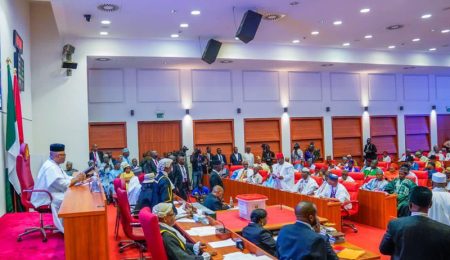The Nigerian Upstream Petroleum Regulatory Commission (NUPRC) has completed a case-by-case review of marginal oil field licences due for renewal, with the final list of qualified firms now awaiting ministerial approval.
NUPRC Chief Executive, Gbenga Komolafe, disclosed this in Abuja during the Energy and Labour Summit organised by the Petroleum and Natural Gas Senior Staff Association of Nigeria (PENGASSAN).
Komolafe explained that the assessment was guided by the Petroleum Industry Act (PIA) 2021, stressing that transparency and accountability underpinned the process.
“First and foremost, the 2020 marginal field round that was concluded when the NUPRC took office, every award is done in a manner that awardees are meant to meet specific milestones within the five years period,” Komolafe said. “It does not necessarily mean that they should meet those terms of the award at the same time. The point I’m making here is that the terms are done in a manner that is on a milestone basis.
“So, in that respect, the fields that are due for renewal and in the characteristic manner in which the NUPRC has operated, we try to define a transparent template to look at each marginal field on a case-by-case basis. An expert team was set up that reviewed each of the awards in the case of each of the awardees with a score sheet that is equally very transparent.”
He added that, “The score sheet is there to ensure that if we say any awardee does not qualify for renewal, the awardee should be satisfied that the case has been looked at meritoriously. So it is on the basis of that that the result of the assessment has been forwarded to the Minister of State for approval. We believe that in the weeks ahead, successful companies that have met the required milestone will have their marginal fields renewed.”
Highlighting past reforms, Komolafe noted that the 2024 licensing round was a landmark exercise. “It was conducted with full transparency, praised by NEITI, broadcast live at the commercial stage, and widely commended as the first in which no one could claim a single dime was paid to anyone,” he said.
Komolafe further stressed that NUPRC’s ambition is to “harness hydrocarbons with world-class efficiency and environmental stewardship, while strategically investing in cleaner alternatives,” guided by the PIA 2021. He added that the commission is also driving incremental production through the “Project One Million Barrels Per Day” initiative, targeting more than 810,000 barrels per day from approved deep offshore development plans.
“At the heart of this effort is the cluster and nodal development strategy, designed to maximise shared infrastructure, capture economies of scale, and enable coordinated tiebacks to existing FPSOs like Bonga, Egina, and Agbami,” Komolafe stated.
In his remarks, PENGASSAN President, Festus Osifo, urged the federal government to divest from ownership of Nigeria’s refineries, citing the NLNG model as a template for efficiency.
“If you bring companies who know how to manage refineries, let them come in and have the majority stake,” Osifo said. “We have the human resources in the refineries who understand how to operate the refinery. But if you work in an organisation and you are not given the tools to work, it is very, very difficult.
“In NLNG today, the government has 49 per cent shares, while ENI, Shell, and TotalEnergies have 51 per cent. With that, the majority of decisions are taken by the private sector. This is the model we want the government to implement in refinery operations, so that we don’t maintain it today, and two, three years’ time, we come back to the same position again.”
Osifo also pressed for dormant oil fields to be revived. “There are some companies that have licences given several years back, but today, they have not carried out anything. You are given licences for drilling and production, but most of these companies have not carried out that function.
“Today, in Nigeria, we have close to over 37 billion barrels of crude oil. If we are hovering around two million barrels production per day, it’s going to take us over 50 years to completely drill what we have beneath the soil. Effort must be put in place to increase production so we can reap the benefit today,” he warned.
He commended Komolafe for driving transparency in the sector, contrasting it with past practices. “We got the report before now about what they used to do. They give oil blocks to big men, to big politicians who don’t even understand or have the expertise. That is why over the years, people were given licences and they kept it under their bed,” Osifo lamented.
The summit, themed “Building a Resilient Oil and Gas Sector in Nigeria: Advancing HSE, ESG, Investment, and Incremental Production”, brought together regulators, labour leaders, and stakeholders to chart a new path for Nigeria’s energy sector.
Emmanuel Addeh
Follow us on:

